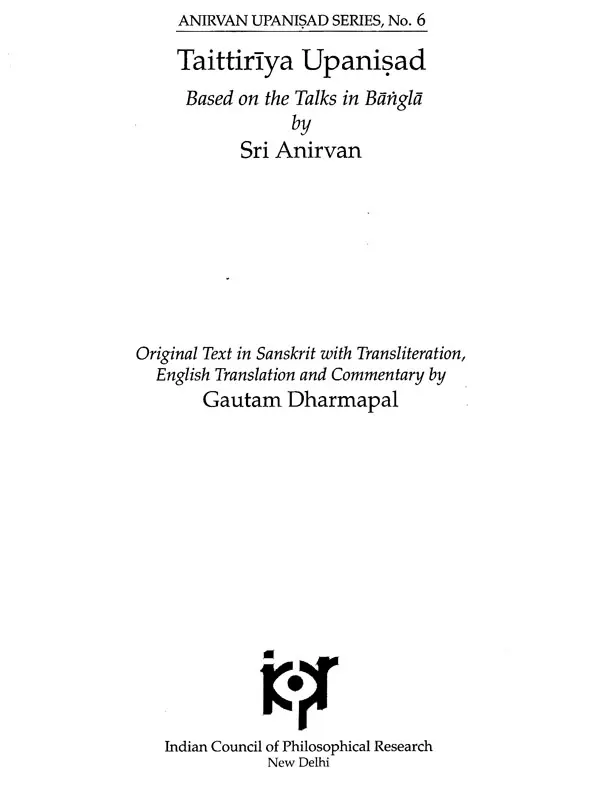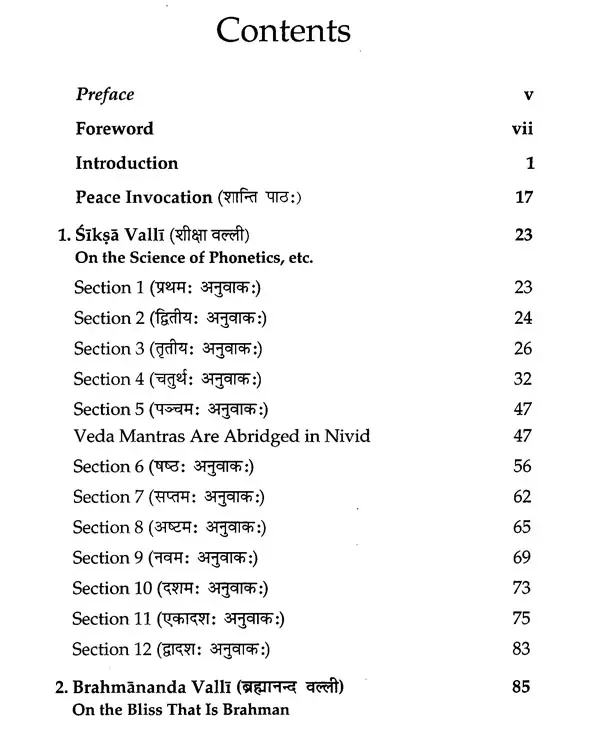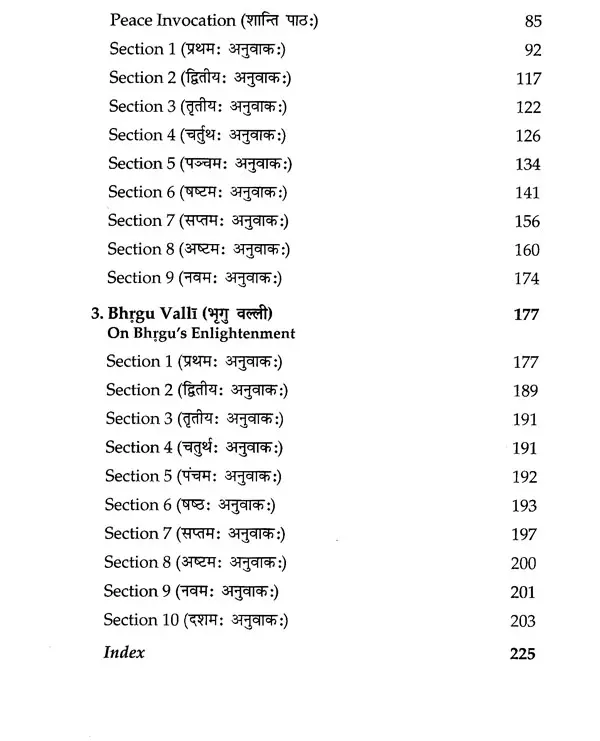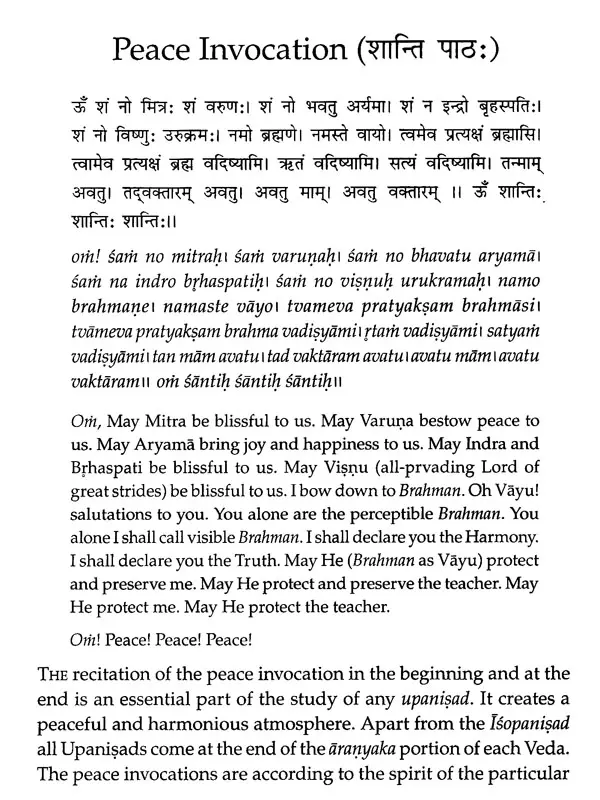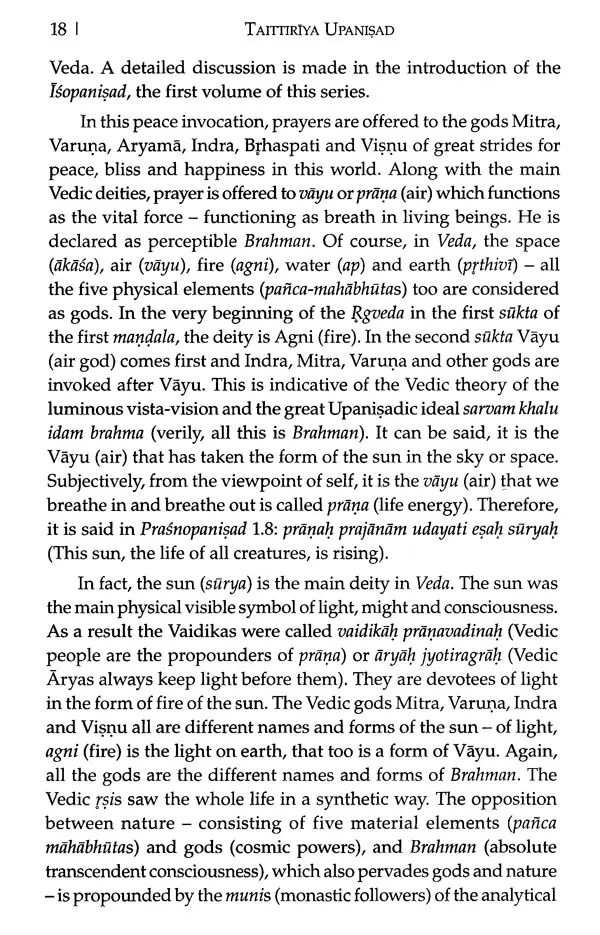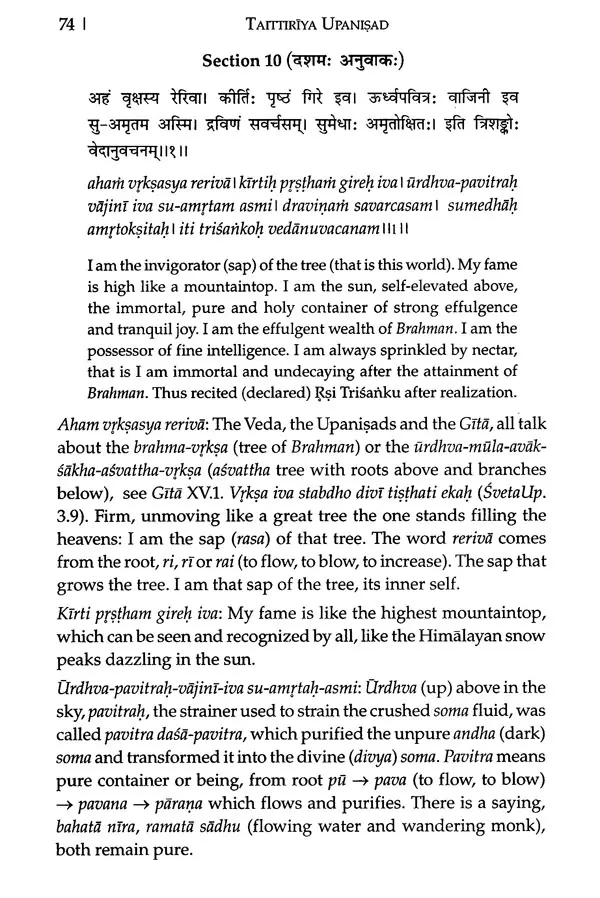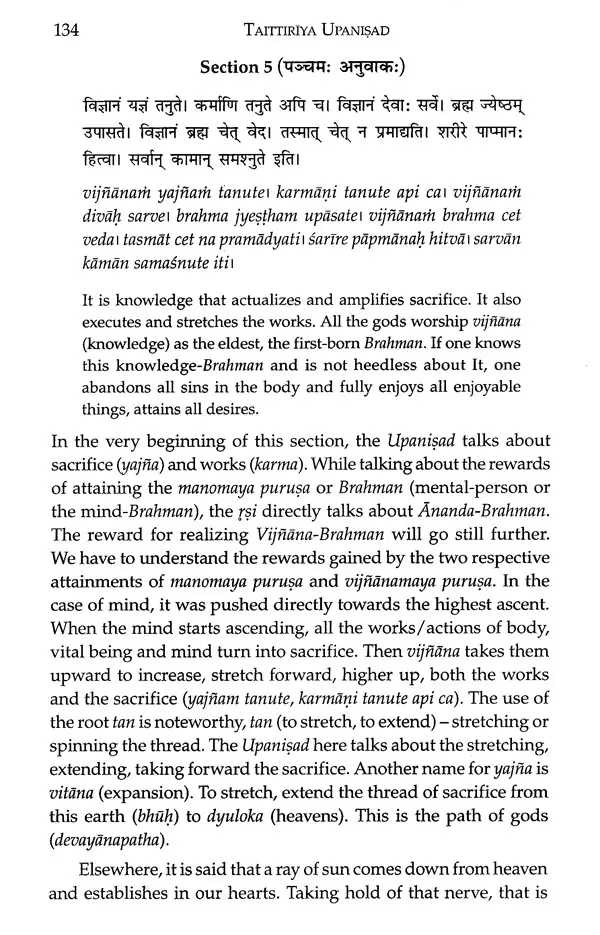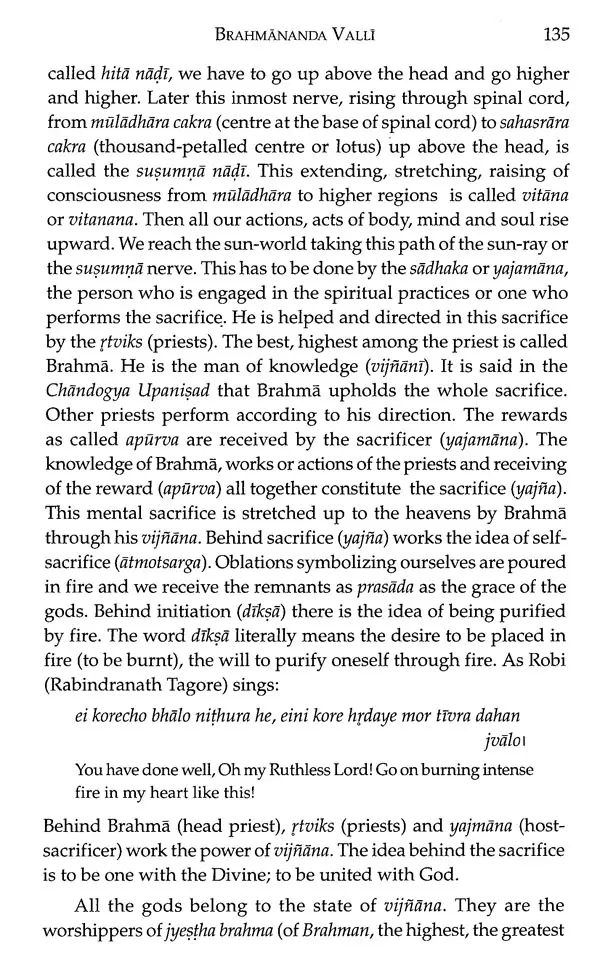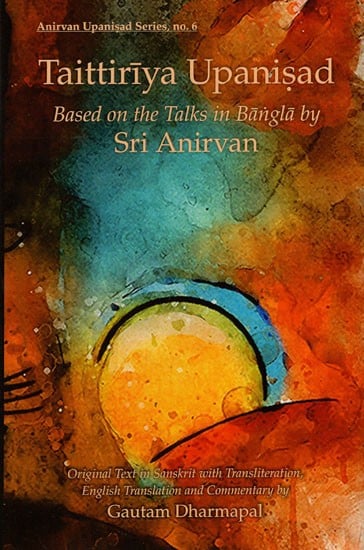About the Book
The Taittiriya Upanisad, associated with the Taittiriya school of the Yajurveda, is a Vedic Sanskrit text. It is generally believed that its authorship is due to the pupils of Sage Vaigampayana. The contents of this Upanisad includes prayers and benedictions, instruction on phonetics and praxis, advice on ethics and morals given to graduating students of ancient Vedic Gurukula along with philosophical instructions. The present book is a compilation of talks on the Taittiriya Upanisad by Sri Anirvan at Dharmasabha, Kolkata during 6 February 1965 to 10 July 1965. Sri Anirvan has talked about peace invocations, science of phonetics, Brahman the bliss and the enlightenment of Bhrigu as the focus of his discourses.
Inevitably, this book approaches the contents of a Vedic text keeping in mind the need of a modern-day knowledge seeker.
About the Author
Shri Anirvan was born on 8 July 1896 in the town of Mymensingh (now in Bangladesh). At the age of eleven he learnt the Astadhyayi of Panini by heart and daily recited a chapter from the Bhagavadgita. He got college education in Dhaka and Calcutta. After completing his studies, Shri Anirvan took sannyasa and became Nirvanananda Saraswati. A few years later, he dropped the ochre robes and changed his name to Anirvan, by which he became known to the literary world.
Between 1930 and 1942, he lived with friends at Allahabad, Lucknow, Delhi and Ranchi. Later on, he moved to Lohaghat in Almora where Madame Lizelle Reymond, a Swiss lady and spiritual seeker, joined him and literally took him to the West through her books. Shri Anirvan moved to Shillong in Assam and finally to Calcutta in 1965. He fell ill in July 1971 and passed away on 31 May 1978 at the age of 82.
His first book was a Bengali translation of Sri Aurobindo's The Life Divine which was published in 2 volumes during 1948-51. But the centre of his studies was the Vedas on which he acquired a rare mastery over the years. His great work, Veda Mimclinsd, in Bengali was published in 3 volumes in 1961, 1965 and 1970. Meanwhile, several other works on Upanisads, the Gita, Vedanta and Yoga were written by him in Bengali and later on translated into English and Hindi.
Preface
THE talks on the Taittiriya Upanisad were delivered at Dharmasabha 6H, Keyatala Road, Kolkata by Sri Anirvan from 6 February 1965 to 10 July 1965. The notes taken then were developed and written down in Bangla with the help of Smt. Bratati Mukherjee and were published in Arya Darpana - a monthly magazine of the Assam Bangiya Sarasvata Math, Halisahar, West Bengal from Phalguna 1409 (March 2002) to Phalguna 1412 (March 2005). It was later published in book form in the Upanishad Prasanga Series, by Burdwan University in January 2007.
Foreword
COMMENTING on S. Radhakrishnan's translation of the principal Upanisads, Rabindranath Tagore remarked at one place that the symbolical expressions used in the Upanisads convey messages that "like some eternal source of life, still illuminate and vitalize the religious mind of India". Rightly so, any endeavour to comprehend Indian philosophical thoughts begins with the Vedas and ends with the Upanisads. It is no wonder that even in the nineteenth and twentieth century Swami Vivekananda and Sri Aurobindo have also got inspiration from these Upanisads. Traditionally, the Upanisads are considered to be the essence of the Vedas; hence, they are called Vedanta. It is also considered that the ultimate wisdom is manifested in the form of Upanisads. Hence, they are also known by the names Srutisikha and Srutisirah. This is the reason that more than ten schools of Indian philosophy claim to have grasped the real meaning of these Upanisads and each one of them calls its own system the real Vedanta prasthana. Therefore, there is a tendency to understand the real import of these Upanisads not in isolation but placing all the Upanisads together. This practice has been going on for a long time. Even when Badarayarja wrote the Brahmasatra he intended to take all the Upanisads together for this purpose. Acarya Sankara very clearly pointed it out saying: vedantavakyakusumagrathanarthatvat satranath. This is no wonder that a number of acaryas have not only written a commentary on the Brahmasatra but also on the principal Upanisads. The sole purpose of all these exercises is to understand the true import of these Upanisads.
Introduction
THE Taittiriya Upanisad belongs to the Taittiriya branch of the Yajurveda. The seventh, eighth and ninth prapathakas (chapters) (called mills in the Upanisad) of the Taittiriya Aratjyaka form the main body of the Taittiriya Upanisad. The tenth chapter is called the Narayana Upanisad and is mostly considered as a subsidiary addition. The three chapters are named Valli (Chapter on Vedic Phonetics, etc.) Brahmananda Valli (Chapter on the Bliss of Brahman) and Bhrigu Valli (Chapter about Bhrigu who acquires the same knowledge about Brahman as propounded in the second chapter from Varurta, his father).
There are twelve sections (anuvakas) in the .i-ksa Valli, including two sections of peace invocation, one in the beginning and one at the end of the vallr. iksa is one of the six Vedangas (works auxiliary to the Vedas), whose study is necessary for the true understanding and interpretation of the Vedas. In Vedic times life of students in the teacher's house began with the study of the Vedas. They used to return to the life of this world after finishing their studies, mastering the secrets of the Vedic knowledge. We get a beautiful picture of the ideals and the spirit that guided this relation between the teacher and the taught in the first chapter. The first anuvakas begins with a peace invocation to the cosmic gods, Mitra, Varurta and others to ward off all obstacles on the path of the seeker of brahma-vidya. In it, Vayu (wind-god) is called as the directly perceived Brahman. This is an illuminating example of the Vedic Chinmaya Pratyaksavada (the idea that Brahman can be realized directly even by our senses). Sarvam khalu idam brahma (verily, All this is Brahman), this great proclamation in Chandogya Upanisad 3.14.1 is derived from such realization.
**Contents and Sample Pages**
